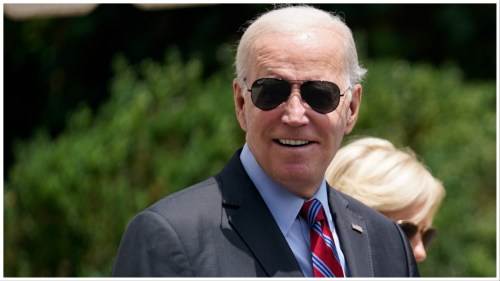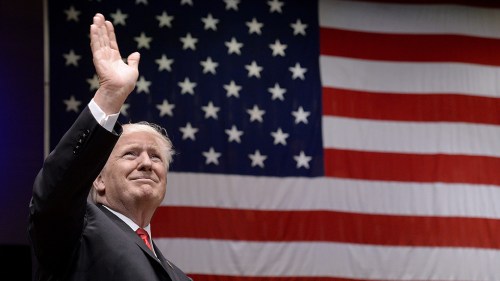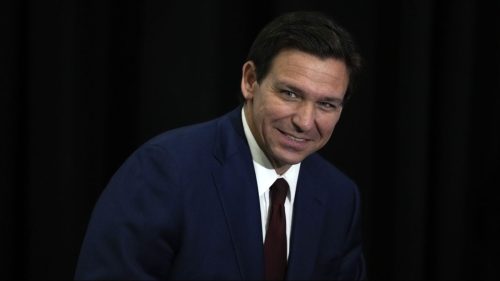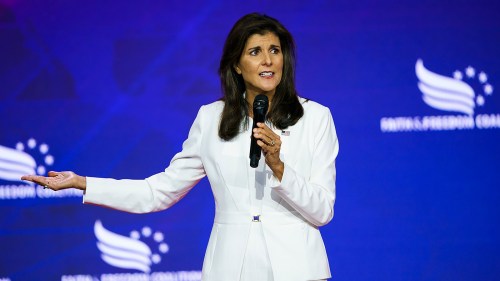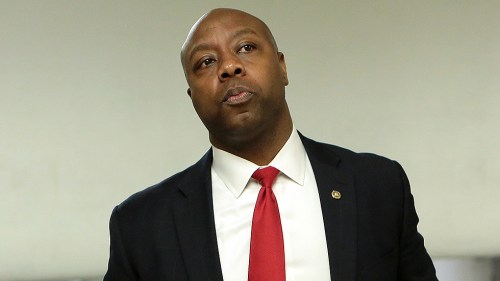5 things to know about Iowa and New Hampshire’s early nominating contests
Iowa and New Hampshire have played an outsized role during presidential cycles in winnowing the field in the race for the White House.
Since 1972, the Hawkeye State has held the first caucuses and the Granite State has held the first primary in the presidential nominating process. How candidates perform in these two states is typically seen as a measure of how likely they are to earn the eventual nomination.
Here are five things to know about the two key early-voting states in the presidential nominating process:
Why are Iowa and New Hampshire first?
Iowa became the site of the nation’s first presidential nominating contest in 1972, after the 1968 Democratic National Convention was marred by political turmoil and the fact the eventual Democratic presidential nominee, then-Vice President Hubert Humphrey, had won the party’s nomination without clinching any of the early state contests. (Since 1920, the first presidential primary had been held in New Hampshire.)
Those events prompted the creation of the McGovern-Fraser Commission, which offered reforms that sought to make the presidential nominating process more reflective of the broader electorate, according to the History Channel. One of those reforms included giving a 30-day announcement ahead of a state’s respective nominating contest to make sure voters had ample notice.
Before 1972, the Iowa caucuses were held in March or April. But because the state’s nominating process is uniquely protracted, with several different stages playing out before delegates are sent to the convention, one of the factors that led Iowa to move the date of its caucuses up was to accommodate the new 30-day rule. Starting with that year, the caucuses were to be held in January, putting it ahead of New Hampshire’s primary in the early-nominating schedule.
“In any serial nomination process, whoever goes first is going to have extra importance,” said Dennis Goldford, a political science professor at Drake University and the co-author of “The Iowa Precinct Caucuses: the Making of a Media Event.”
“It’s all a matter [of] historical accident,” said Goldford, regarding how Iowa and New Hampshire became the first two voting states. “It’s just that 48 states dislike the position of both Iowa and New Hampshire, but until they come up with some acceptable alternative, Iowa and New Hampshire remain pretty much where they are.”
What role do they play in picking the eventual president?
Former New Hampshire Gov. John Sununu (R) once quipped that Iowans picked corn while New Hampshire voters picked presidents. While neither state alone has consistently picked the eventual party nominee or president, their position as the first two early state contests has magnified their role in winnowing the field for the White House.
“My metaphor has always been that it’s sticking a thermometer into the body politic of each party to get a sense of how warmly or how coldly disposed party activists are toward the various candidates running for the presidential nomination,” Goldford said.
Smith, who’s director of the University of New Hampshire Survey Center and co-author of “The First Primary: New Hampshire’s Outsize Role in Presidential Nominations,” noted that it’s about the momentum candidates get in their White House campaigns.
“If you think of it as advertising, winning New Hampshire is worth hundreds of millions of dollars of advertising revenue, because for the next week, at least up until the South Carolina primary, you’re going to be the headline news,” Smith said. “Your candidacy is what did you do? Who is this new person, particularly if it’s somebody who’s unexpected to win. Who is this person? Why are they important?”
How accurately have they picked the eventual nominee?
Although Iowa and New Hampshire have a mixed track record when it comes to picking the eventual occupant of the White House, they both do consistently better when it comes to picking the nominees. Iowa has typically chosen the Democratic nominee while New Hampshire has chosen the Republican nominee, NPR notes.
Between 1976 and 2020, six Democratic candidates who won the Iowa caucuses became the party’s eventual nominee in contested elections, compared to three Republican candidates who won the Iowa caucuses and became the GOP nominee, according to ABC News’ roundup of Iowa and New Hampshire nominees.
Of those six Democratic candidates who won in Iowa, two of them — former Presidents Carter and Obama — would go on to win the general election. On the Republican side, only former President George W. Bush would win the Iowa caucuses and later go on to win the presidency.
Meanwhile in New Hampshire, six Republicans who won the New Hampshire primary would go on to secure the GOP presidential nomination in contested elections, compared to five on the Democratic side.
Three Republicans — former Presidents Reagan, George H.W. Bush and Trump — won the New Hampshire primary and would later go on to secure the GOP nomination and eventually the White House. Of Democrats, only Carter would win the New Hampshire primary, in 1976, and go on to secure the presidency.
What do the DNC’s primary calendar changes mean for both states?
The Democratic National Committee moved last February to shake up its primary calendar after Biden pushed for the early state lineup to be changed. According to the changes, South Carolina is now holding its primary first on Feb. 3, followed by Nevada and New Hampshire on Feb. 6.
The impetus for these changes was a call to place more attention on voters of color in making the early-voting lineup more reflective of the modern-day electorate. But it was also seen as a way to reward South Carolina — a state credited for helping provide a crucial boost for Biden’s campaign in 2020.
Iowa Democrats are complying with the DNC calendar by establishing a mail-in caucus, the winner of which will not be announced until at least March 5.
But New Hampshire is still holding its primary ahead of South Carolina, much to the chagrin of the DNC. To avoid the potentially embarrassing optics of one of Biden’s primary challenges winning on Jan. 28, allies of the president have launched a write-in campaign that is not directly affiliated with the White House.
What if they deliver mixed results in this year’s GOP primary?
So far, surveys from the two early states and nationally have shown former President Trump leading his rivals in both states.
A polling average of Iowa surveys from Decision Desk HQ and The Hill show Trump holding more than a 30-point lead over Florida Gov. Ron DeSantis, with roughly 52 percent and 18 percent support, respectively. Former U.N. Ambassador Nikki Haley sits in third at 17 percent.
Meanwhile, Trump holds a smaller leader over Haley in New Hampshire, with a polling average of New Hampshire surveys from Decision Desk HQ and The Hill showing Trump at 42 percent, Haley at 30 percent and former New Jersey Gov. Chris Christie at 11 percent.
But one potential scenario could see Trump winning Iowa and Haley winning New Hampshire. A win in the Granite State for Haley would give a new boost of momentum to the former South Carolina governor, who will then face her rivals in her home state’s primary on Feb. 24.
Even if Haley lost both states, that doesn’t mean it’s the nail in the coffin for her campaign either: Two presidents between 1976 and 2020 lost both Iowa and New Hampshire but later won their White House bid: former President Clinton in 1992 and President Biden in 2020.
Still, even if Haley overperforms in any of these states, she likely faces an uphill climb to beat Trump for the nomination.
Copyright 2023 Nexstar Media Inc. All rights reserved. This material may not be published, broadcast, rewritten, or redistributed. Regular the hill posts
